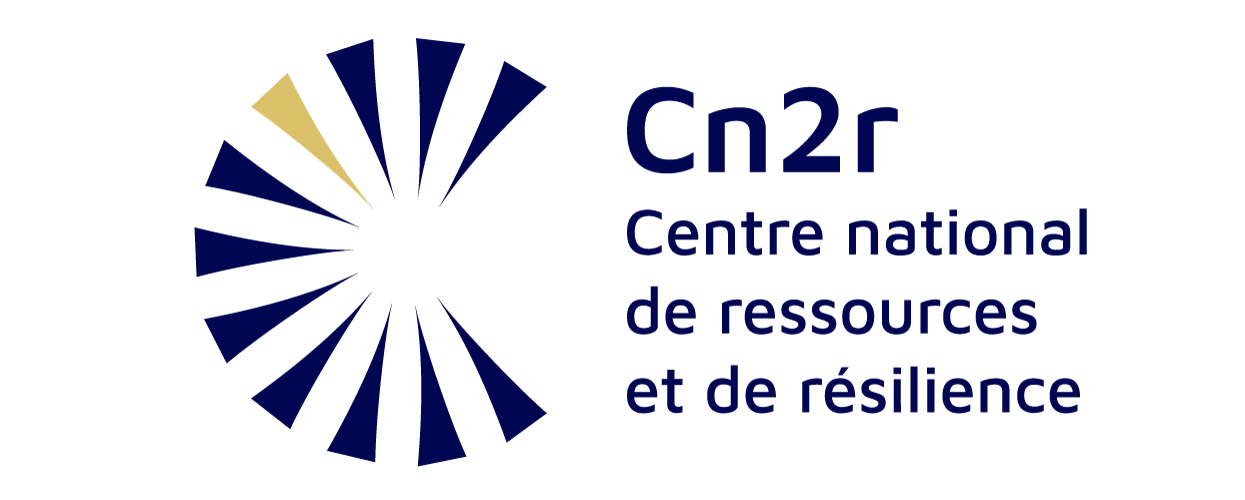To find a public healthcare facility, click here
Seeking psychological help
Treating post-traumatic stress disorder
Find out all about psychological help and treatment for post-traumatic stress disorder. For some of us, treatment will help us rebuild our lives. For others, they reduce symptoms and improve quality of life.
Sometimes we have difficulty overcoming a traumatic event and its impact on our lives. These difficulties are common and frequent during the first month after the event. But if they take hold or arise months or years later, it's important to seek help. The first step is to consult a general practitioner. He or she is an important partner after PTSD. With him or her, we can discuss the symptoms and treatment options available in our area. PTSD can also be complicated by associated disorders such as depression or addiction. It is useful to diagnose these so that they can be managed.
Therapies are adapted not only to the traumatic event experienced, but also to the individual's history, day-to-day life, social environment and financial situation. These elements, which vary greatly from one person to the next, determine the course of treatment. For the moment, in France, not everyone has access to PTSD-specific therapy, but a general practitioner will refer you to a health professional who can help you get better.
How do we know what's right for us?
The first step is to feel confident and welcomed by the chosen healthcare professional. This is the time to discuss with him or her the goals of care, the type of therapy envisaged, the number of sessions required and the cost of treatment. Consultations with a psychiatrist are reimbursed in part by the health insurance system, depending on the doctor's area of practice (1 or 2). Sessions with a psychologist registered with the Mon Soutien Psy scheme can be reimbursed up to a maximum of twelve sessions. Outside this scheme, sessions are not reimbursed by social security. It is also possible to consult an approved center such as a hospital or CMP (Centre médico-psychologique). If you have a mutual insurance policy, it's worth checking what it covers.
Whatever therapy we choose, it must be delivered by a healthcare professional with an ADELI number (for psychologists and psychotherapists) or an RPPS number (for doctors). These are unique professional identifiers that attest to the seriousness of the person's training. In addition, it is strongly recommended that the professional be specifically trained in the therapy he or she applies. You need to be vigilant and find out about his or her training and background. Finally, a professional does not need to have been exposed to a traumatic event to be competent.
Therapies
The therapies presented are those currently validated by scientific research and by Cn2r. They have been tried and tested, with good results. Children and adolescents can also be affected by PTSD. Therapies are the same as for adults, but are carried out by a healthcare professional specialized in working with children and adolescents. Parents must also be involved.
Trauma-focused emotional, cognitive and behavioral therapies (ECBT)
These therapies postulate that emotions and behaviors are determined more by people's interpretation of an event than by the event itself. They are based on the principle that, with practice, new ways of behaving, feeling, sensing and thinking are possible. To achieve this, they use a variety of psychotherapeutic strategies to help people question their thoughts and beliefs, and change them when they cause suffering (cognitive restructuring), assess the way they adapt to their environment, appreciate the consequences and possibly develop new, more effective skills (role-playing with the therapist, focusing on coping strategies), regulate their emotions (breath control or relaxation), confront their fears and overcome their avoidance behaviours (exposure in imagination or in vivo).
In this field, TECCs have been specially designed to treat PTSD. These are trauma-focused therapies. These are brief therapies (between 10 and 15 sessions). Sessions last one hour and are delivered at a rate of atleast one per week. They cost between 45 and 60 euros per session, and may be covered by certain mutual and supplementary insurance companies. Today, three protocols are recognized for their psychotherapeutic efficacy:
- Prolonged exposure therapy: this protocol helps people to emotionally digest their traumatic experience by inviting them to repeatedly revisit their traumatic memories using an imaginative exposure technique, and to overcome the distress they feel in the presence of clues evocative of the trauma (a place, a situation, a smell, etc.) using an in vivo exposure technique. Gradually, traumatic memories are transformed into memories we can live with, and avoidance behaviors fade and disappear.
- Cognitive processing therapy: this protocol helps people to analyze and deconstruct the negative thoughts and beliefs they may have held since the traumatic event. Through cognitive restructuring, they learn to analyze the thoughts and beliefs that disrupt their view of the world, others and themselves, and hinder their recovery, and then reshape them. Gradually, a more balanced system of thoughts and beliefs develops, enabling us to enjoy a better quality of life.
- Cognitive therapy: this protocol combines and develops the therapeutic strategies of the two previous protocols. Cognitive restructuring focuses on the notions of danger/safety, personal competence/incompetence, self-image and trust in others. On the exposure side, imaginative exposure to traumatic memories induces a modification of the content of the memories to make them more tolerable, while in vivo exposure remains unchanged.
Alternating bilateral stimulation therapy (EMDR)
EMDR stands for Eye Movement Desensitization and Reprocessing. During an EMDR session, the healthcare professional asks us to think about the hottest or most traumatic moment, letting our emotions rise to the surface. He then asks us to follow his finger with our eyes, moving it in front of him from left to right for around ten seconds. Then we express our emotions and sensations again. These steps are repeated several times during the session. Gradually, the intensity of the emotion provoked by the memory of the traumatic event diminishes until it disappears.
In general, an EMDR session lasts 60 to 90 minutes for an adult, 60 minutes for a child or teenager. Prices range from 80 to 150 euros. Sessions should be held weekly. Some mutual insurance companies and supplementary insurances cover EMDR.
Trauma-focused psychodynamic psychotherapy
For the time being, science has not yet come to a conclusion as to the effectiveness of these therapies. This is not to say that they don't work, but rather that research is still ongoing to assess their effectiveness. These psychotherapies do not treat the disorder, but rather the whole person. They are inspired by the concepts of psychoanalysis, largely developed by Freud and Lacan, for whom the discovery and understanding of the unconscious causes of our difficulties enable us to free ourselves from them. They are based on talking, analysis and self-reflection, accompanied by listening and intervention on the part of the therapist. These psychotherapies can be useful in both the short and medium term. They focus on our main problems. They are suitable provided we are ready to reflect on ourselves.
These therapies can be short (10 to 20 sessions) or longer. Sessions last from 30 to 45 minutes. Prices vary from 30 to 100 euros.
What about medication?
Some drug treatments can be effective if we are unwilling or unable to follow other therapies. They can also facilitate and support other treatments. Once medication has been prescribed, the doctor will regularly review its effects and adjust the treatment if necessary. When medication is prescribed to combat symptoms, this is not a sign that the therapy has failed. We shouldn't feel guilty about taking the necessary steps to get better.
The different professionals
It's not always easy to know which of these professionals to consult. Often lumped together under the label "shrink", these professions are nonetheless different.
> The psychiatrist
Psychiatrists hold a doctorate in medicine. During his university career, he specialized in the study of psychiatric disorders.
As such, they can prescribe medication and hospitalization. They issue a medical claim form for reimbursement by the social security system.
> The psychologist
The psychologist holds a Master 2 degree (or DESS) in psychology. During their training, they specialize in the study of human behavior. In France, the title has been protected and recognized by the State since 1985.
All psychologists must have an Adeli number (issued by the Agence régionale de santé) in order to practice.
The clinical psychologist offers therapeutic interviews, assessments using tests and questionnaires, but will not be able to prescribe medication as he or she is not authorized to issue a prescription. Some mutual insurance companies offer reimbursement for these procedures: an experiment has been underway since 2018.
> Complementary training
In addition to their initial training, some psychiatrists and psychologists can undergo further training that enables them to acquire and master specific psychotherapy tools such as EMDR, behavioral and cognitive therapies, hypnosis, psychoanalysis and so on.
The use of the title of psychotherapist has been protected and regulated in France since 2010. As such, they have an Adeli number and must be registered on the national register of psychotherapists. There is no university training; the title is awarded on the basis of an assessment by the Agence Régionale de Santé (ARS) of the skills developed or training attended. Consultations are not reimbursed.
For all other designations (e.g. psychopractitioner), caution is advised.


